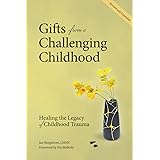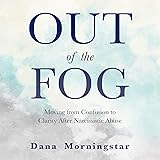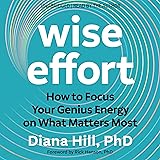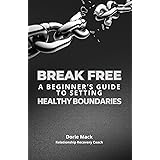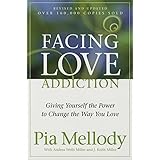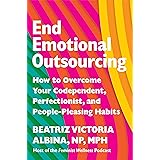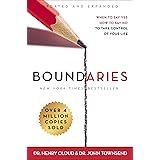Have you ever found yourself trapped in a cycle you desperately want to escape, where fleeting highs are inevitably followed by devastating lows? The video above offers a raw, deeply personal account of a journey through six years of intense problem gambling and the profound shift towards recovery. This compelling story highlights common patterns experienced by many struggling with gambling addiction, from the initial winning streaks that hook individuals to the overwhelming financial and emotional consequences.
The speaker’s candid reflections provide invaluable insights for anyone questioning their own relationship with gambling or seeking a path towards a healthier, more fulfilling life. Understanding the mechanisms behind gambling addiction and embracing proactive steps, such as those discussed below, can truly empower you to make a lasting change. This article will delve deeper into the core lessons from the video, offering expanded context and practical strategies for overcoming compulsive gambling.
Understanding Problem Gambling and Its Deceptive Beginnings
Problem gambling often starts innocently enough, perhaps with small bets or a series of unexpected wins. The speaker, for instance, began by placing bets on basketball games, experiencing early successes that created a false sense of control and opportunity. These initial victories can be incredibly powerful, cementing a belief that gambling is a viable, even exciting, way to make money quickly.
This early success triggers a potent psychological response, conditioning the brain to associate gambling with reward. Imagine if every time you tried something new, you instantly won a significant prize; you would naturally be inclined to repeat that action. This initial reinforcement makes it incredibly difficult to recognize the point at which entertainment transitions into addiction, as the pursuit of that initial high drives continued play despite mounting losses.
The Illusion of Easy Money and Rapid Returns
One of the most dangerous misconceptions about problem gambling is the idea that it represents the quickest path to financial gain. The speaker openly admits to holding this belief for a significant period, valuing the rapid pace of earnings over the stability of traditional employment. This perceived speed of wealth accumulation can be particularly attractive to young individuals or those feeling financially insecure, offering an alluring alternative to the slower, more predictable routes of earning money.
However, this perception is a perilous illusion that often leads to deep financial holes rather than true prosperity. The promise of doubling or tripling money instantly through a lucky bet or a parlay often overshadows the stark reality of consistent losses. Problem gamblers frequently chase these elusive “big wins,” convincing themselves that one more bet will somehow recover everything that has been lost, only to fall deeper into debt and despair.
Breaking the Cycle of Gambling Addiction
The path out of gambling addiction is multifaceted, requiring a significant shift in mindset and daily habits. The speaker’s journey illustrates several critical steps that are often central to successful recovery, moving from a life dominated by betting to one focused on personal growth and genuine fulfillment.
1. Confronting the Reality of Losses and Financial Impact
For many problem gamblers, acknowledging the true extent of their financial losses is a crucial turning point. The speaker mentions that his net losses were likely equivalent to “five or six years worth of a standard US salary,” a staggering figure that propelled him to seek help. This realization can be incredibly painful but is often necessary to break free from denial and understand the gravity of the situation.
Facing the financial devastation gambling causes can serve as a powerful motivator for change. It highlights the stark contrast between the illusion of winning and the reality of mounting debt and missed opportunities. This honest assessment helps individuals recognize that gambling is not a solution to financial problems but rather their primary cause.
2. The Importance of Support Systems and Professional Help
Admitting the need for help and actively seeking support is arguably the most vital step in overcoming gambling addiction. The speaker found solace and guidance in Gambler’s Anonymous meetings, emphasizing the profound benefit of connecting with like-minded individuals. These groups provide a safe, non-judgmental space where shared experiences foster understanding and mutual encouragement.
Professional therapy, support groups, and counseling offer structured frameworks for addressing the underlying psychological factors contributing to addiction. Imagining a journey through unfamiliar terrain without a map or guide underscores the challenge of recovery without support. These resources provide the tools, strategies, and emotional resilience needed to navigate the complexities of addiction and build a new, healthier life.
3. Embracing Delayed Gratification and Long-Term Rewards
A central theme in the speaker’s recovery is the concept of delayed gratification, a profound shift from the immediate, intense highs of gambling. He notes that the last “110, 115 days or so” of his recovery have been defined by this principle. This involves choosing activities that may not offer instant satisfaction but contribute to long-term well-being and progress. Gambling, by its very nature, trains the brain to crave instant rewards, making the shift to delayed gratification a challenging yet transformative process.
For example, instead of chasing the thrill of a quick win, a person in recovery might choose to invest time in writing, journaling, reading, or meditating. These activities, while sometimes perceived as “boring” in the moment, accumulate over time to produce significant, lasting benefits for mental, physical, and emotional health. This reorientation toward future rewards cultivates patience, resilience, and a deeper sense of accomplishment, fundamentally altering how success and happiness are perceived.
4. Replacing Destructive Habits with Productive Ones
Effectively replacing the void left by gambling with constructive, healthy habits is crucial for sustainable recovery. The speaker diligently fills his days with activities like creating daily videos, eating healthier, exercising, and improving sleep. These actions may not offer the same immediate dopamine rush as a winning bet, but they build a foundation for a stable and meaningful life.
Imagine if your entire day’s productivity was measured by financial gains or losses, as it was for the speaker during his active gambling. This relentless focus on external results often leads to feelings of worthlessness on losing days. By contrast, pursuing tangible outputs like creating videos, even if they only garner a “ten views,” provides concrete evidence of effort and progress, shifting the measure of success from uncontrollable outcomes to controllable actions.
5. Prioritizing Time and Meaningful Engagement
The most precious commodity lost to gambling addiction is often time. The speaker poignantly states that “the only thing that you can never get back is your time.” Hours, days, and even years can be consumed by betting, tracking scores, or dwelling on losses, often at the expense of friends, family, and personal pursuits. His experience of driving for food delivery while losing more money gambling than he earned illustrates this profound waste of time and effort.
Redirecting this time towards activities that foster genuine connection, personal development, or creative expression is a hallmark of recovery. Instead of endlessly refreshing scores or sitting in casinos, individuals can engage in hobbies, volunteer work, or career advancement. These pursuits offer intrinsic rewards, build tangible skills, and enrich one’s life in ways that gambling never can, creating a sense of purpose and belonging that transcends monetary gains.


